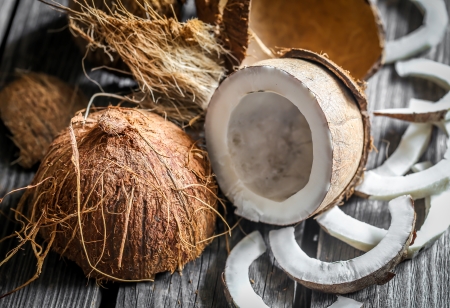
Coir fiber presents a simple yet potent solution to various environmental and agricultural challenges. This natural and sustainable resource not only reduces our reliance on synthetic materials but also enhances soil quality, conserves water, and promotes eco-friendly farming practices. Coir fiber being a biodegradable, eco-friendly alternative, reduces its environmental impact. Its high water retention capacity aids in preventing soil erosion improves moisture levels, and reduces irrigation needs. It also reduces chemical fertilizers and pesticides. By using this natural and sustainable resource, we can cut our dependence on synthetic materials while simultaneously improving soil quality and conserving water.
Coir fiber is a remarkable ecological alternative to synthetics like plastic mulch or peat moss, and it significantly reduces their environmental impact. Notably, it's a natural and sustainable resource. Coir production stands out for its minimal energy consumption and reduced water usage compared to other materials in its league. Moreover, coir is a significant player in the battle against plastic pollution, as it's entirely biodegradable. It's extracted from coconut husks, which would otherwise end up as waste, making it a highly sustainable choice that utilizes a byproduct of the coconut industry. Given the abundance of coconut growth in many tropical regions, the supply of coir fiber is consistently available and easily renewable. This underlines coir's sustainability as a long-term solution for various applications, ranging from erosion control and gardening to packaging materials.
People tend to choose their coir pith based on EC (Electrical conductivity), sand content, and expansion volume," says Mohamed Raashid, General Manager of Business Development at Evergreen Exports.
Coir fiber, a natural soil enhancer, significantly benefits gardeners and farmers. When mixed with soil, it improves aeration and water retention, creating optimal conditions for robust root growth and efficient nutrient absorption, resulting in healthier and more productive crops. Its fibrous structure also prevents soil erosion, safeguarding land integrity and preventing nutrient runoff into water sources. Coir fiber's eco-friendly nature reduces reliance on synthetic fertilizers and pesticides, aligning with responsible and sustainable farming practices. Embracing coir fiber not only enhances plant growth and soil quality but also supports environmental preservation for future generations.
Coir fiber's exceptional water retention properties ensure soil remains moist even in arid conditions, reducing the need for frequent irrigation and conserving water resources. This is especially beneficial in areas experiencing drought or water scarcity, where coir fiber can help farmers sustain their crops without depleting local water supplies. Coir fiber's water retention benefits seed germination and root development, promoting healthier plants. It increases efficiency and productivity in agriculture, and is a sustainable alternative to traditional materials, and acts as a natural weed suppressant. Coir fiber's water retention benefits seed germination and root development, promoting healthier plants. It increases efficiency and productivity in agriculture, is a sustainable alternative to traditional materials, and acts as a natural weed suppressant. By embracing coir fiber in agriculture, farmers can contribute to a greener and more sustainable future while maximizing their yields and minimizing their impact on the environment.
Coir fiber, as mulch, naturally suppresses weeds by forming a barrier, reducing competition for nutrients and sunlight. This is a boon for organic farming, eliminating the need for chemical herbicides. Coir mulch also maintains soil moisture and temperature, creating an ideal environment for desired plants to thrive. As it naturally decomposes, coir enriches the soil with organic matter, boosting fertility and reducing the demand for synthetic fertilizers. Incorporating coir mulch not only simplifies weed management but also contributes to long-term soil health and environmental preservation. Overall, using coir fiber as a weed suppressant in agriculture promotes sustainable and eco-friendly farming practices. It is a smart choice for farmers looking to grow sustainably and protect our planet.
Coir fiber-based mulch mats or blankets naturally break down over time, requiring no removal or disposal. This makes them a hassle-free and environmentally sustainable choice. The biodegradable nature of coir mulch is particularly beneficial for organic farmers who prioritize sustainable practices. As the mulch decomposes, it adds nutrients to the soil, improving its structure and promoting healthy plant growth. Also, since coir mulch does not require removal or disposal, it reduces waste and minimizes the environmental impact of farming operations. Overall, the use of biodegradable coir mulch aligns with the principles of sustainable agriculture and contributes to long-term soil health.
Coir fiber, a natural and renewable resource, stands as a sustainable alternative to synthetic materials like plastic mulch and peat moss. Its eco-friendly qualities extend beyond being biodegradable, impacting various aspects of agriculture and the environment. From enhancing soil structure and water retention to serving as a natural weed suppressant, coir fiber fosters healthier crops while minimizing the need for chemical herbicides. Furthermore, coir-based mulch mats offer an environmentally responsible solution by reducing waste and supporting long-term soil health. By choosing coir fiber, farmers and gardeners embrace sustainable agriculture principles and contribute to a greener future.
We use cookies to ensure you get the best experience on our website. Read more...